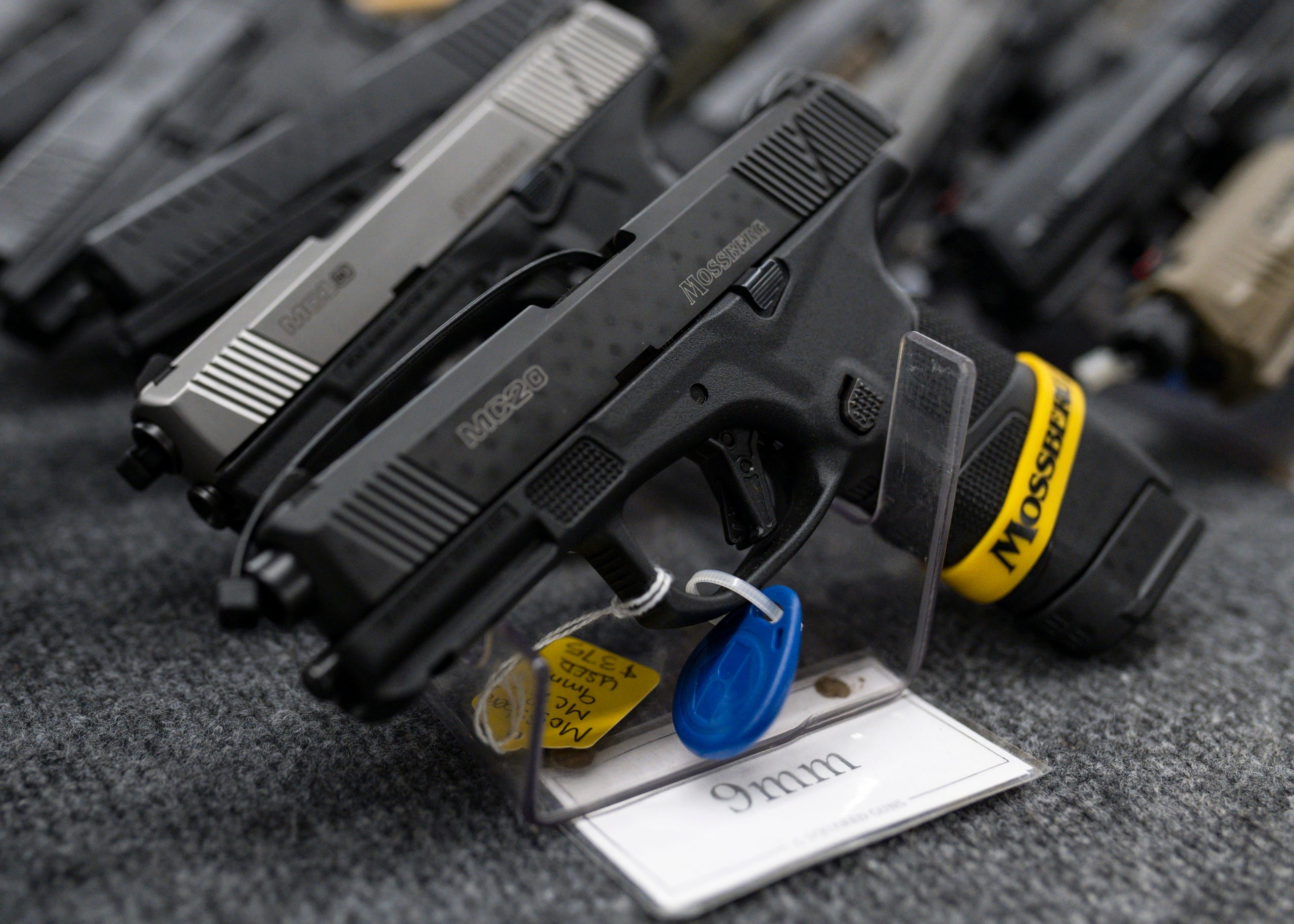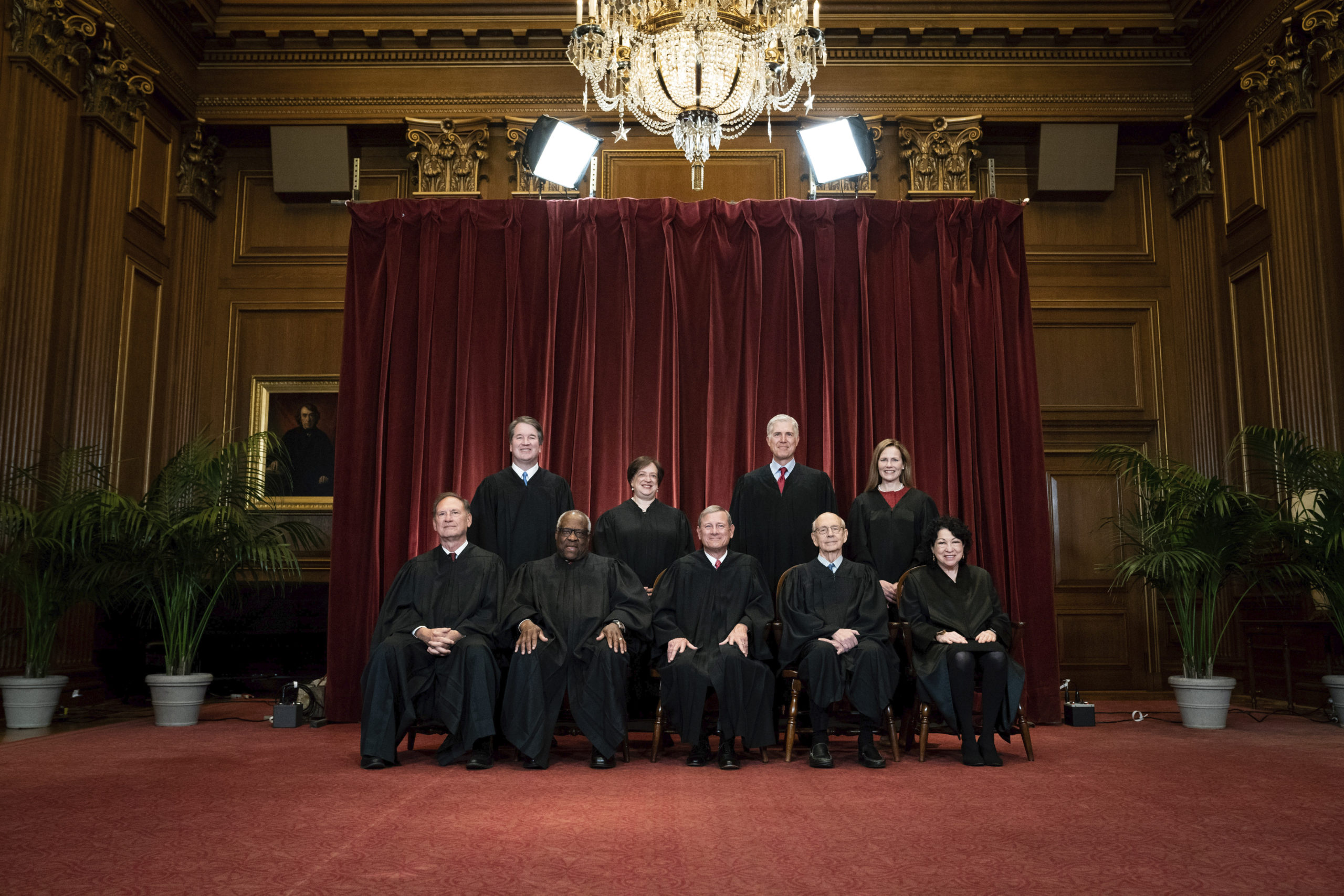In June, the Supreme Court struck down a provision of New York law that required gun owners to show “proper cause” to carry a concealed gun in public. The decision effectively dismantled a policy known as “may-issue,” which was applied by New York and seven other states and gave licensing authorities the discretion to issue or deny concealed carry permits based on factors that go beyond basic requirements like passing a background check.
While New York State Rifle & Pistol Association v. Bruen dealt with concealed handgun permits, there’s another gun licensing system that was not addressed in the opinion: permit-to-purchase, which requires residents to obtain a license to buy a firearm. Of the 14 states that have such a policy, three — Massachusetts, New Jersey, and New York — are may-issue, giving authorities the discretion to deny applicants a license in the interest of public safety, again based on criteria beyond basic requirements. Such criteria includes arrests that don’t result in convictions and other documented instances of violent behavior, including domestic violence. Now that the court has struck down may-issue for concealed carry, these last vestiges of the policy may be ripe for a court challenge as well, legal experts say.
“I wouldn’t be surprised, given the similarity,” said Alexander McCourt, an assistant professor at Johns Hopkins University’s Bloomberg School of Public Health. In many permit-to-purchase states, the handgun purchasing permit and concealed carry permit processes are one and the same, involving some of the same paperwork and evaluated by the same issuing authority, McCourt said. Several permit-to-purchase states also require handgun safety training, fingerprints, photographs, proof of residence, and waiting periods to own or buy a gun, just as they do for concealed carry permits. “There’s just a lot of parallels,” he said.
Issuing authorities in some of the permit-to-purchase states without may-issue still wield the discretion to deny permits, in the form of suitability and character requirements. In North Carolina, where purchase permits are required for handguns only, some sheriffs require applicants to be of “good moral character.” It’s unclear exactly how issuing authorities determine this, but it’s not “arbitrary discretion,” McCourt said. “They have to at least articulate a reason that could then be appealed and challenged.” McCourt expects suitability and character requirements to be challenged in court, as well.
Handgun purchasing permit requirements are repeatedly upheld in court — but that was under the methodology that Bruen just rewrote. Before, lower courts used a two-pronged approach to evaluate the constitutionality of a gun law: Judges looked back through precedent to decide whether the regulation infringed on someone’s Second Amendment right, and if it did, they evaluated whether the regulation furthered an important government interest, like preventing gun violence. Now, McCourt said, “It’s a whole new ballgame.”
In its opinion, the court’s majority specified a 77-year span of history that lower courts should look to when determining the constitutionality of gun regulations: from 1791, when the Second Amendment was ratified, to 1868, when the 14th Amendment — which the Supreme Court has interpreted to apply the Bill of Rights to the states — was ratified.
During that period, permit-to-purchase laws do appear to have a historical analogue to today, but for only one group: Black Americans. In 1828, Florida passed a law requiring formerly enslaved people to obtain a license from a justice of the peace in order to use and carry a gun. Delaware followed three years later. In 1865, just as the Civil War drew to a close, Mississippi enacted a law requiring free Black people to obtain a license from “the board of police of his or her county” to keep “firearms of any kind, or any ammunition.” That same year in Louisiana, Black residents were required to seek approval from police and their employer if they wanted to own a gun.
“This is where the new methodology runs into trouble, because we have a history of racist gun laws,” said Adam Winkler, a professor at UCLA School of Law. “How do you even conceptualize those in a history-and-tradition [context]? On one hand, you’d say to ignore them, because they’re racist,” and thus unconstitutional.
David Pucino, the deputy chief counsel at Giffords Law Center, the legal arm of the gun reform group, said that according to Justice Clarence Thomas’s majority opinion in Bruen, historical analogues don’t have to be exact to adhere to the methodology of Bruen — the intent of the law and the context around its enactment is what matters. “You don’t necessarily have to look for the existence of the exact same law hundreds of years ago,” he said. “It’s the how and the why that’s going to be the key to the historical analogue.”
In its present-day iteration, permit-to-purchase is viewed by lawmakers and gun safety advocates as a way to ensure that guns don’t get into the hands of someone who may use them for harm. Most states require only a criminal background check for a gun sale through a federally licensed dealer. Twenty-one states require background checks with private gun sales. In permit-to-purchase states, retail or private sellers can’t transfer a gun unless the buyer has a law enforcement-issued license, and applicants are often required to show up in person at a police station to apply. Depending on the state, the licenses are valid anywhere from 30 days to 10 years, and applicants must get rechecked upon renewal.
This deeper level of vetting has been shown to reduce gun violence and stem the flow of guns to criminals. A 2015 study from Johns Hopkins found that permit-to-purchase laws that require applicants to get fingerprinted are associated with 45 percent lower rates of exporting guns to criminals in other states. (Currently, seven states and Washington, D.C. require fingerprints.) Permit-to-purchase laws that allow law enforcement to use discretion when approving or denying permits were associated with a 67 percent lower rate of the illegal out-of-state exportation of guns.
“We’ve seen reductions in suicide, reductions in homicide, reductions in incidents of mass shooting” as a result of handgun purchasing laws, McCourt said.
But under the court’s new history-and-tradition framework, the real-world effects of these laws aren’t supposed to be considered, which could leave permit-to-purchase vulnerable to challenges. Winkler said he’s surprised there haven’t been lawsuits already. “The Supreme Court has basically opened new floodgates for litigation, and a lot of laws that were decided under Heller and were upheld by the courts are now going to be reconsidered,” he said, referring to the 2008 SCOTUS case that established an individual right to keep and bear a handgun for self-defense.
Winkler said that since “good moral character” and suitability requirements invite authorities to exercise discretion, “I think for sure we will see lawsuits over those policies.” But their chances of succeeding are impossible to predict with this norm-breaking court, he said. “It could go either way.”
Permit-to-purchase laws are popular with the public. Eighty-four percent of people in states with the policy support it, as do 74 percent of people in states without the law, according to a 2020 analysis of national polling. It’s also popular with gun owners: 59 percent of them in states without the policy still support it. Efforts to repeal North Carolina’s pistol purchase permit law in 2015 were met with opposition by the state’s sheriffs, who argued that the proposed system allowed “access to significantly more information about the applicant’s criminal record, pending criminal charges, mental health record, and other relevant data than is contained in the federal NICS system,” which conducts background checks nationally.
Few states have adopted permit-to-purchase requirements in recent years; Maryland was the most recent, in 2013. But one state, Missouri, eliminated its permitting system, and that had a pronounced effect on gun violence. Within three years of repealing its permit-to-purchase law in 2007, the state’s gun homicide rate had spiked 25 percent. Within five years, the state’s overall murder rate was up 14 percent. Gun theft increased as well, according to a 2021 analysis by the Center for American Progress. Iowa removed its handgun purchasing permit requirement last year when it became a permitless carry state, making it optional.
Federal lawmakers have introduced national permit-to-purchase bills since 2015, but they’ve gone nowhere. The most recent version, introduced in March, is currently stalled in the Senate.
Correction: An earlier version of this article misstated the number of states that require permits to purchase guns. Minnesota — which was excluded from the previous count — requires gun buyers to obtain a purchasing permit for pistols and some semiautomatic rifles. But the law also allows handgun buyers to circumvent the requirement through a one-time purchase option, which involves an application made through a federally licensed dealer, a thorough background check by local law enforcement an a waiting period.


